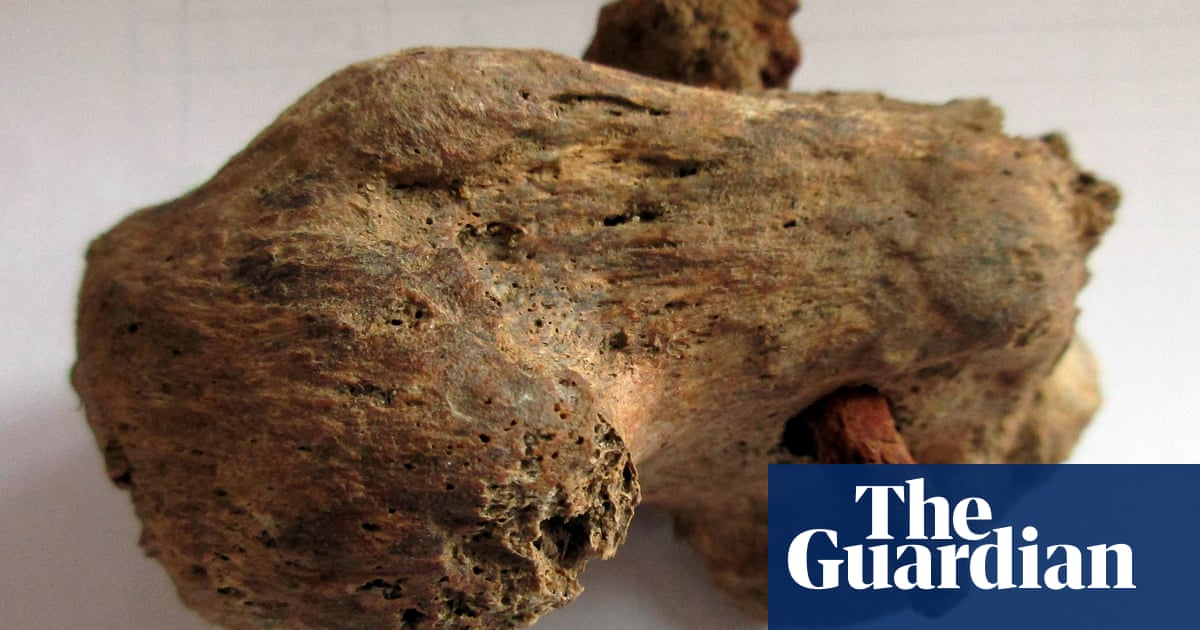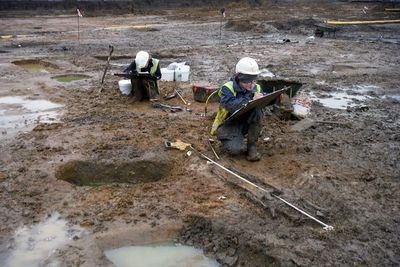Praefectus Praetorio
R.I.P. Brother of the Quill
All you'll ever need to know about Rome from Peppa:


Interesting find!This might be of interest.

Best physical evidence of Roman crucifixion found in Cambridgeshire
Near 1,900-year-old skeleton discovered with nail through heel bone during excavation in Fenstantonwww.theguardian.com
There's a more detailed discussion of this find, and its contextThis might be of interest.

Best physical evidence of Roman crucifixion found in Cambridgeshire
Near 1,900-year-old skeleton discovered with nail through heel bone during excavation in Fenstantonwww.theguardian.com

Fascinating read, thanks for sharing.There's a more detailed discussion of this find, and its context
in this free-access copy of the CBA magazine, British Archaeology -
click on the link below the cover picture - if you just want to read about the nailed bone,
scroll through to the last few pages, 26 ( = 9 in the extract) on:

Free Access to Crucifixion in the Fens: Life and Death in Roman Fenstanton
Exclusively for British Archaeology Magazine, David Ingham & Corinne Duhig report on the excavations, and what they believe to be rare evidence for ancient crucifixion - and the first from northern Europe.www.archaeologyuk.org
That's an interesting article. In a way, the default situation must have applied throughout most of the world through most of history - your identity and position in society could only be guaranteed and spoken for by those who knew you and your family, within a small, local community, or - at the upper-class end, aristocrats and wealthy merchants - a network of people of similar status to yourself, your 'peers'. Only slaves, soldiers, and those on official business, would carry some visible, portable means of identification (in the case of slaves, probably a branding) The censuses, and 'documents', described in the article imply a rather more complex, bureaucratic system for keeping tabs on people, though one wonders how effectively it was actually implemented, even when the late Republic and then the Empire were at their most efficient.About a discussion in another thread : Roman citizenship gave the owner several priviliges. But how did one proof to be a Roman citizen?
About a discussion in another thread : Roman citizenship gave the owner several priviliges. But how did one proof to be a Roman citizen?
I thought it was me too.Again, not 'Roman', at least not in the 'Ancient Roman' sense, but many members have told of their fascination with crux, and with other themes we enjoy here, being fed by medieval art and literature - martyrdoms etc. - especially (though not only) transmitted via the 'Roman' church:
Painful pleasures
Sadomasochism in medieval cultures
https://manchesteruniversitypress.co.uk/9781526153340/
